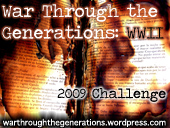If you live out in the wind-swept Dust Bowl and you have a memory you need to forget, a trip to The Antidote might be in order. She can take every visceral piece of your memory and store it down inside herself until you choose to go back and retrieve it. It’s a beautiful thing, this memory erasing. It CAN beautiful, that is, unless the things that you have chosen to forget can no longer make you the person you could be - or should be.
This remarkable novel explores the power of grief and memory in the context of America's biggest ecological disaster. Each chapter is told from one of several different character's viewpoints and each of these characters (sentient, whether human or not) will face more than the blackness and grit of a black blizzard. They must allow themselves to believe in a kind of magic that can turn memory into a tangible commodity and that can turn the tide of human choices in a big enough way that the actual future can change. I am still thinking about all the huge ideas here, the way that collective memory (or forgetfulness) can influence individuals, the different ways we process the losses that leave us with gaping holes and, most especially, how we can fill those holes back up.
It took me a while to get into, I have to be honest. I had to get my feet under me for maybe the first third of the book. But once I starting settling into this barren and sometimes ruthless fictional town of Uz, Nebraska, I knew I had to find out what would happen to both the evil and the downtrodden. I knew there wouldn't be happiness, necessarily, because this is not a happy book. There is a plot thread about inherited wrongs and native lands that broke me open and really made me think. But there is also redemption and a worn kind of comfort at the end, like an old quilt on a cold night, and I know The Antidote is going to stick with me.

































No comments:
Post a Comment